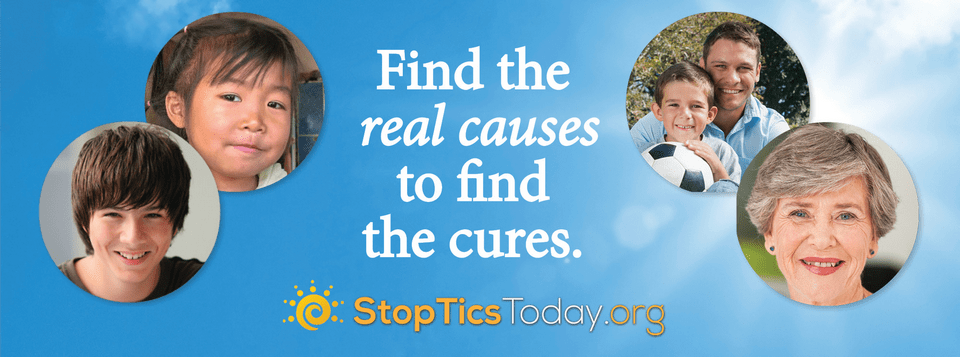The problem we are facing with Tourette syndrome and other tic disorders
Did you know that millions more people deal with tics today than just two decades ago? It’s an epidemic that is being ignored.
Tics can be disruptive, distressing, embarrassing, and painful. Children are most affected, but many adults suffer from them also.
Once rare, Tourette syndrome is now estimated to affect 1 in 100, while even more people live with persistent or temporary tics. Lyme disease and Pediatric Acute Acute-onset Neuropsychiatric Syndrome (PANS or PANDAS), among other conditions, can also cause tic symptoms.
We’ve started a new initiative to find better answers for the causes and treatments of tic disorders.
The time has come to stop the tics!
New answers are needed—today—for the prevention and treatment of vocal and motor (muscle) tics. We need more effective approaches and safer treatments than conventional medicine offers.
To date, researchers have been unable to determine the causes and develop safe treatments for most tic disorders. Medications prescribed to subdue tics often have strong side effects, leaving patients and families with few and unsatisfying treatment options.
New hope for tic disorders
The Association for Comprehensive NeuroTherapy (ACN) has been collecting data and reports from physicians and families for 25 years. A growing body of evidence substantiates an environmental and immune system component in tic disorders.
It’s time to raise awareness and fund research that moves in a new direction—a direction that can uncover the real causes of tic disorders and provide answers to stop tics!
Join our efforts to stop tics for the benefit of children and adults everywhere—and for generations to come.
Together we can find the causes of the tic epidemic and the best approaches to treat tics—today!
About Our Cause
Learn more about this important cause, our team, our background and the discoveries we’ve made on tics and Tourette syndrome.
Help Support Us
Every dollar we receive helps us further our mission to fund research and find better approaches to tic disorders.
We Need Your Help
Want to make a difference in the lives of those suffering from tic disorders? Find out how you can help out.

